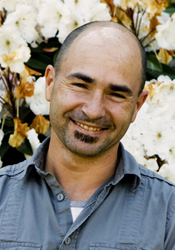Exogen uses crowdfunding to both collect needed specimens and raise capital to pursue FDA clearance for its proposed medical laboratory test that would identify an individual’s damaged DNA
It might be coming soon to a pharmacy or other retail store near you: a medical laboratory test kit allows consumers to test themselves for damaged DNA. This bold new world for genetic testing is the vision of a new company in San Francisco called Exogen Biotechnology.
This startup business was co-founded by Sylvain Costes, Ph.D., a nuclear engineer who serves as Exogen’s Chief Executive Officer, and Jonathan Tang, Ph.D., a bioengineer. Their team is developing a blood test that will enable consumers to monitor their own DNA damage and take actions to reverse the damage.
Creating a Diagnostic Test to Identify Damaged DNA
In its story about this project, the science blog KQED pointed out that DNA replication is prone to error during cell division, so the body is constantly repairing the damage.
Sometimes, however, the DNA repair process fails, resulting in accumulation of damage and genetic mutations that may lead to health issues, like cancer, immunological disorders, and neurological disorders.
Exogen Blood Test Determines Level of Body’s DNA Damage
Exogen’s new diagnostic test analyzes a blood sample to determine how much DNA damage has already occurred. Such damage can be due to environmental factors like exposure to radiation, ultraviolet light, and toxins. It can also be caused by poor lifestyle choices, such as smoking.
If an annual checkup includes this blood test, patients may be able to optimize their long-term health by minimizing continued DNA damage with a healthy diet, exercise, and avoidance of enviromental irritants.
Exogen Technology Quantifies Type of DNA Damage
Costes stated that his company has also developed technology to quantify the type of DNA damage, called double-strand breaks. “DNA double-strand breaks are when the two strands of the DNA are cut, so they can move apart,” he said in an interview with KQED. “This is linked to mutation and chromosone rearrangement, so it’s a big deal−it’s the dangerous type of DNA damage. That’s what we look at.”
According to the KQED blog, Exogen’s three-step test process to track and quantify DNA damage includes:
1) a home blood collection kit;
2) immunocytochemistry; and,
3) DNA breaks quantification.
Consumers to Collect Their Own Blood, Then Send Specimen to Exogen
To use this medical laboratory test kit, the customer collects tiny blood samples using the home blood collection kit, then mixes the blood samples with a fixative solution to preserve them. Next, the consumer logs onto Exogen’s website to register the blood samples and complete a questionnaire. Upon completion of these steps, the specimen is mailed to Exogen for analysis.
Immunocytochemistry (ICC) technology is a laboratory technique that uses a primary antibody that binds with the protein repairing the DNA break, along with a secondary fluorescent antibody that binds to the primary antibody and creates bright spots on the microscope image where double-strand DNA breaks occur. This allows scientists to take a picture and count the breaks. This technique makes it feasible to rapidly determine the number of DNA double-strand breaks with just a small blood sample.
Pilot Studies Determine Amount of DNA Damage That Occurs With Age
Exogen tested this new technology in two pilot studies that involved 97 individual of various ages, before taking the technique to the public. During the pilot studies, Exogen scientists observed that DNA damage increases significantly with age, with 70 years olds having double the number of DNA double-strand breaks, compared to 20-year-olds, noted the KQED blog.

Nuclear Engineer Sylvain Costes, Ph.D., Cofounder and CEO of Exogen, says his company’s diagnostic test gives healthcare consumers a way to monitor their own DNA damage, so they can take actions to reverse it. (Photo copyright Exogen Biotechnology.)
“When we did the first pilot study, we saw the excitement of the people [participating in the pilot study],” said Costes. “They realized that this is something totally new; something we know [about] in the research field, but that’s never been given to the people.”
Exogen Used Crowdfunding to Prepare for Test for FDA Approval
To prepare for Food and Drug Administration (FDA) approval of this diagnostic test, Exogen conducted a “citizen science project.” This was a crowdfunding campaign on Indiegogo.com. People who donated $99 received a home test kit to have their blood sample analyzed for DNA damage.
The crowdfunding campaign enabled the company to both raise startup funds and collect 1,000 blood samples needed to submit the test for FDA for approval. Without FDA approval, however, Exogen cannot interpret the results of these tests or provide advice about how to reverse DNA damage, noted the KQED blog.
—by Patricia Kirk
Related Information:
How Damaged is Your DNA? A New Startup Wants to Know
Quantified Health Startup Exogen Bio Wants People To “Track & Hack” Their DNA Health


